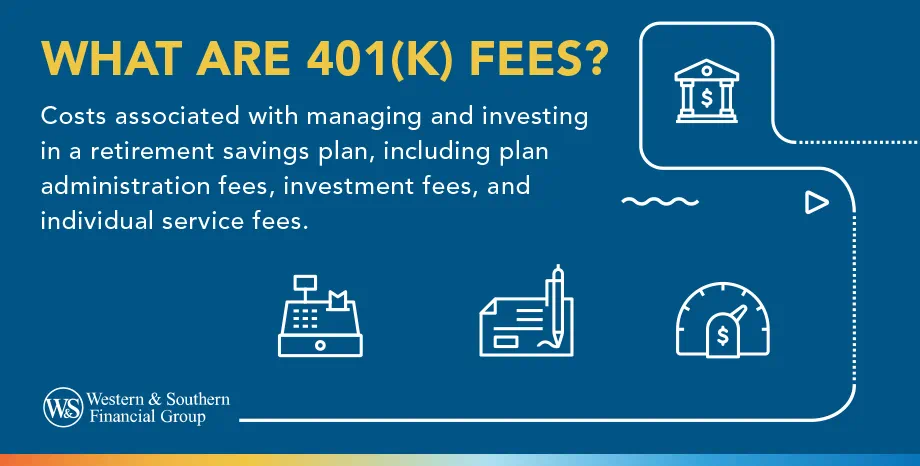

Table of Contents
Key Takeaways
- 401(k) fees can be classified into three main categories: Plan Administration Fees, Investment Fees, and Individual Service Fees.
- Investment fees, such as expense ratios, can significantly impact the growth of your retirement savings over time.
- Employers have a fiduciary duty to act in the best interest of their employees and must provide detailed fee disclosure statements for 401(k) plans.
- Understanding and being aware of the fees associated with your 401(k) can help you make informed decisions to maximize your retirement savings.
- While some fees may be hidden, reviewing annual fee disclosures and statements is crucial to identifying all the costs associated with your 401(k) plan.
Employer-sponsored 401(k) plans are an extremely popular tool to save for retirement. While these plans can be an effective retirement planning tool, they often require you to pay 401(k) fees. These fees seem small at first glance, but they can add up over time and might make a difference in your final balance when it's time to retire. According to the Investment Company Institute, there were $7.4 trillion in 401(k) assets in the U.S. by the end of 2023.1Here's some information to keep in mind.
Types of 401(k) Fees
Trying to decipher all of the different fees paid by your 401(k) plan can be challenging. The DOL helps simplify the process by classifying fees into three categories.
1. Plan Administration Fees
Plan administration fees cover the cost of managing your 401(k) plan. This includes:
- Day-to-day expenses of record keeping
- Accounting
- Legal and trustee services
- Costs of the additional services your plan provides, such as customer service and financial education tools
Some plan administration fees are included with investment fees, but many are billed separately. Your employer may cover some of these fees, and some are charged to you as a flat fee or as a percentage of the total assets in your account.
2. Investment Fees
The largest component of your 401(k) plan's fees are likely the investment fees, which include the marketing costs, sales loads and expense ratios of the plan's underlying mutual funds and other investments.
In most cases, they are charged as a percentage of assets invested and are deducted directly from your investment returns. Keep in mind that you may also be subject to income taxes and a 401(k) early withdrawal penalty if you take a distribution before you turn 59 1/2.
3. Individual Service Fees
Your plan may charge you for optional services offered to participants, which are generally charged to you as one flat fee or on a pay-per-use basis. These can include actions such as:
- 401(k) rollovers
- 401(k) hardship withdrawals
- 401(K) loans
- Access to professional investment advice or other services
Other Fees
Many, but not all, of your 401(k) plan's fees will be listed in the plan's annual fee disclosure and quarterly statements. If you don't see a fee itemized on your statements doesn't mean it should be overlooked.
12b-1 fee
One common fee is a 12b-1 fee, which is separate from the investment management fee and covers expenses related to the mutual funds in the plan. The 12b-1 fees generally pay for advertising, marketing costs, and other services.
12b-1 fees are often included in the mutual fund's expense ratio. To find the exact amount your plan charges, consider reviewing the mutual prospectus and your plan's summary annual report.
How Can 401(k) Fees Affect Your Savings?
The amount of 401(k) fees you pay could have an impact on how much you're able to save. For example, say a 40-year-old employee with a current 401(k) account balance of $100,000 plans to save an additional $1,500 per year until age 65. Assuming a 6% annual investment return and fees and expenses totaling 1%, the employee can potentially save around $410,000 for retirement.
However, if the same employee's 401(k) plan charged a 2% fee, their account balance would only grow to $329,000. In this example, a 1% difference in 401(k) fees cost the employee $81,000 in retirement savings. It's important to note here that no 401(k) plan can guarantee growth, and may instead lose value over time. Therefore, the annual return mentioned can fluctuate or even be negative.
As a 401(k) sponsor, your employer has a fiduciary duty to act prudently and in your best interest. All such employers are required to offer participants disclosure statements containing detailed information about the fees and expenses paid by your 401(k) plan and its underlying investments.2
Bottom Line
The DOL requires that all 401(k) plan fees be reasonable, based on the size of the company and each participant's individual investments. But monitoring your 401(k) plan fees and expenses is an important step in helping to secure your financial future. Knowing how much you are paying and identifying ways to potentially avoid 401(k) fees could help you make the most of your retirement savings.
Sources
- 401(k) Resource Center. https://www.ici.org/401k.
- 401(k) Participant Disclosures - What Employers Need to Know. https://www.employeefiduciary.com/blog/401k-participant-disclosures-what-employers-need-to-know.















